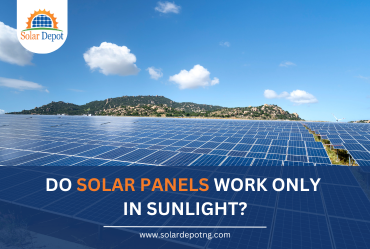Do Solar Panels Work Only In Sunlight
In recent years, Photovoltaic (PV) solar panels have emerged as a leading solution for generating electricity sustainably. These panels, typically composed of silicon materials, harness natural daylight to produce an electric current, effectively converting solar energy into usable electricity. Despite their reputation as a renewable and eco-friendly energy source, questions persist about their efficacy in cloudy climates and whether direct sunlight is necessary to maximize their benefits.
The prevailing misconception suggests that solar panels solely rely on direct sunlight for operation. However, it's essential to understand that these panels primarily depend on daylight, not intense sunlight, to function efficiently. This distinction is crucial, as it underscores the versatility and reliability of solar energy in various weather conditions.
Contrary to popular belief, solar panels do not require direct sunlight to generate electricity effectively. Instead, they utilize photons from natural daylight to trigger the photovoltaic process, which converts light energy into electrical power. While direct sunlight offers optimal conditions for solar panel performance, even in overcast weather, diffused light penetrates clouds and reaches the panels, albeit at reduced intensity.
Modern advancements in solar panel technology have further enhanced their performance in cloudy conditions. Incorporating concentrators equipped with lenses and mirrors, these panels maximize the utilization of available light, ensuring consistent electricity generation regardless of weather patterns. Studies indicate that solar panels can retain up to 40% of their efficiency in heavy cloud cover, with clearer skies yielding higher electricity production rates.
In conclusion, the notion that solar panels require sustained bright sunlight for operation is a myth. While direct sunlight offers optimal performance, solar panels remain effective even in cloudy or overcast conditions, thanks to their reliance on daylight for energy conversion. As such, concerns about the viability of solar energy in varying weather conditions are unwarranted, reaffirming its status as a dependable and sustainable electricity solution.
Additional Note:
For those considering solar panel installations in Nigeria, Trina multicrystalline panels are a recommended choice. These panels, known for their efficiency and reliability, contribute to effective solar system installations in Nigeria, ensuring long-term energy sustainability.






